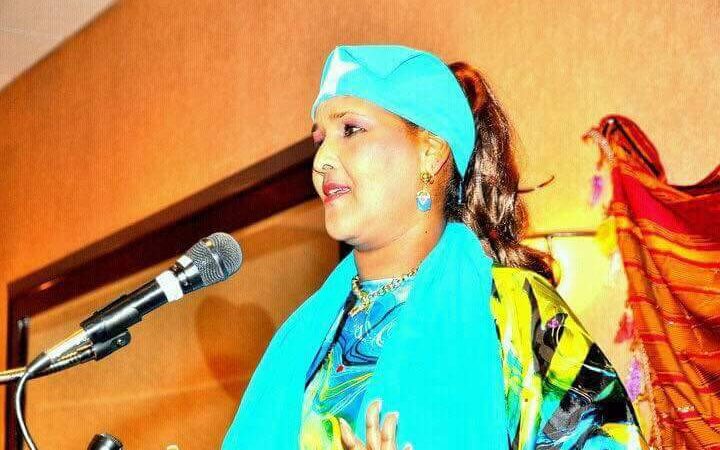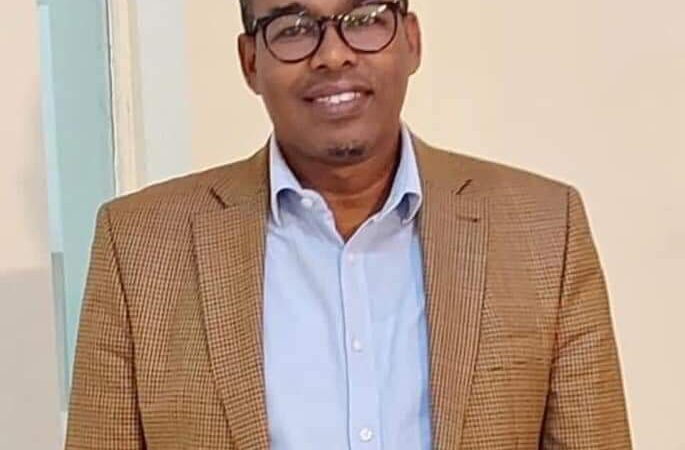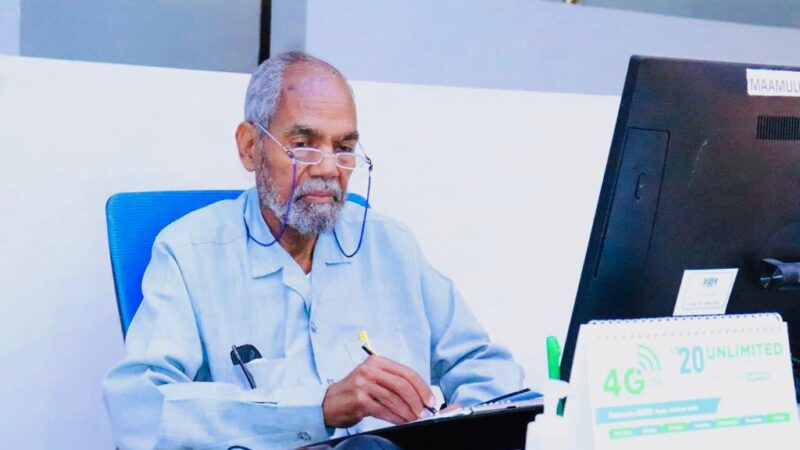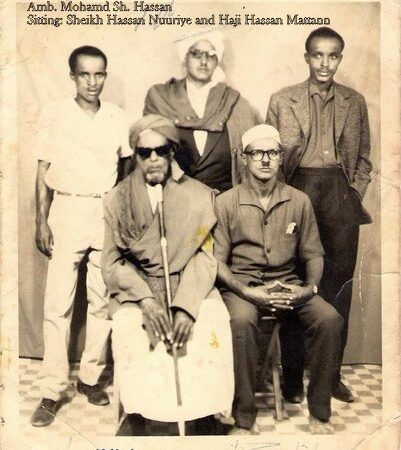The Man Who Founded a University and Changed Millions of Lives!

Professor Suleiman Ahmed Gulled, one of the most high-profile Somali educators, was born in 1942 in Jaarre, the Somali regional state in Ethiopia. He took his primary and secondary education in Borama and later Sheikh district. In 1964 he went to America for studies and received his bachelor degree from Emporia State University. He also took his postgraduate studies at London University. He has a wife and four children
Later, Professor Suleiman Ahmed Guled became the Dean of Lafole School
of Education which was one of the leading higher education institutions in Africa at that time. He worked as a director of high schools in Somalia’s Ministry of Education.
Following the collapse of the nation, he went to Addis Ababa, Ethiopia where he was involved in community development programs in Somali regions. He played a key part in uniting twelve separate Somali political parties in Ethiopia into one. He was proposed to lead that coalition party but refused to do so as he was not interested in politics. Also, he helped Oromo scholars to the writing of their language as it was only spoken before he went to Ethiopia.
In 1996 he came back to Borama and started to establish Amoud University alongside other educators, mainly from Somaliland. Though there were many strong challenges, Prof. Suleiman and his colleagues succeeded in their work with the help of the Somali locals and diaspora. The university became the first of its kind after the civil war.
Foundation of Amoud University
Since destruction of Somali nation in earlier 1991, there was dismal situation the whole country that affected almost every person. Somaliland declared its independence from the rest of Somalia, but that did not settle the matter for years as there were civil wars. Because of such situation, many scholars and community leaders tried to solve things as only as much as they could. Four diaspora scholars from Awdal region proposed the idea of founding a university. A group of locals led by Professor Suleiman Ahmed Gulled were responsible for the implementation of the plan though there were numerous challenges included lack of fund, lack of required lecturers, lack of enough teaching and learning equipment, security concerns and others; however, the biggest challenge was how to convince the discouraged people about the idea of establishing a university as it seemed impossible.
Prof. Suleiman and his team believed that establishing a university in a war-torn country can be a transformative endeavor with far-reaching impacts. Beyond providing access to higher education and specialized skills training, a university can serve as a catalyst for social cohesion and economic development. By empowering youth, promoting tolerance, and fostering cultural preservation, universities play a pivotal role in rebuilding the social fabric and preserving the unique identity of a society. Moreover, through international collaboration and exchange programs, universities can connect the country to the global academic community, fostering cross-cultural understanding and promoting peace. Ultimately, education emerges as a powerful tool for not only preventing future conflicts but also nurturing a culture of dialogue, cooperation, and sustainable development, making the establishment of a university a crucial step towards rebuilding, empowering, and transforming the society in a war-torn region. But many of the people of Somaliland saw this just as a daydream.
Finally, Amoud University was founded in 1997, and it was a dream came true. The late president of Somaliland Mohamed H. Ibrahim Egal approved and gave support. The diaspora mainly from Borama and Hargeisa funded the university for the first three years. Also, locals of Borama provided financial support. Entrance exam was taken and 65 students were selected over 260 candidates. Also, there were only three lecturers, 4000 books sent from Dubai and 5000 dollars from president Egal to repair the large campus which used to be a secondary school. Prof. Suleiman said, “I still remember a young man who came from Hargeisa stayed Borama for two months to sit for the entrance examination. I and other colleagues told him that he should be allowed to study without the entrance exam as he came from far and waited for exam for a long time. He rejected us and later became one of the first ten winners”.
As professor Suleiman told, the university offered only two faculties at the beginning namely Education and Business Administration. He said, “since the country did not have a functioning higher institution, it was badly needed teachers. So, the Faculty of Education is responsible for preparing future educators, teachers, and professionals who will shape the minds of the next generation. This investment in education helps build a skilled and knowledgeable workforce essential for the country’s development as well as recovering from destructions.” He also added, “the Faculty of Business is instrumental in rebuilding, empowering, and transforming a war-torn nation’s economy. By fostering entrepreneurship, innovation, job creation, and sustainable business practices, this faculty contributes to economic growth, social stability, and overall prosperity, paving the way for a brighter future for the country and its people. Also, the business and economic sector of the country were overwhelmingly controlled by private companies. They needed accountants to make their works better”. Almost every school and university in Somalia have at least a lecturer/s graduated from Amoud University while graduates of Business administration developed the country’s business sector.
Amoud University currently has thirteen faculties, five thousand students, five hundred teaching and non-teaching staff, five campuses in Borama, Hargeisa and one in online. It offers both undergraduate and postgraduate studies.
Following twenty-five years in office, Professor Suleiman Ahmed Gulled stepped down as the president of Amoud University back in 2022. He is now a consultant of the university and a community development advocate.
Impact of the University On the Country
Since its establishment, Amoud University has a lot of impact on Somaliland and Somali people in general as it gave a sense of hope, peace, reconciliation and brighter future. Many higher education institutions were founded in other cities in the country like Mogadishu, Hargeisa, Burco, Bosaso and others. Also, it provides access to higher education and specialized training programs that equip individuals with the knowledge and skills needed to rebuild their communities and contribute to economic development. This made Somalia/Somaliland a better place than before as doctors, engineers, accountants and many other professionals from Amoud university contribute the development of the country. Besides, AU is a hub of research and innovation that address societal challenges and promote sustainable development in partnership of the Somaliland government and international organizations. Moreover, and most importantly, the AU served as platforms for peacebuilding and reconciliation efforts in the country. The first two buses of the university were sent to Burco to deliver local fighting groups a message of peace. Residents of war-torn cities asked themselves how Borama had a university, and they were still fighting; that changed their views and directed towards peace and development. The Amoud University is the first to benefit from international collaboration and partnerships with academic institutions, non-governmental organizations, and development agencies. Then other universities in the country followed that way. Lastly not the least, the graduates of Amoud University include ministers, ambassadors, heads of international organizations, army general, researchers, professors and many others who proudly work around the world.
Hamze Yassin







Great article ! Half a century of experience and golden history of prof.Sulleiman can’t be collected into a single article, I suggest that this golden history be collected into a book so that it can be read for ages.
insha Allah bro, we will try to write a book about him. Thanks!